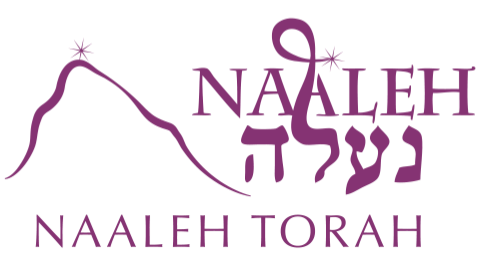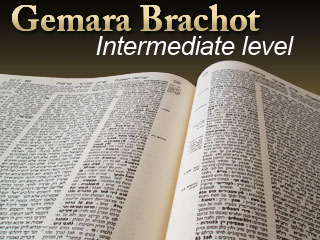Category: Oral Law
This series of classes on the Oral Law offers listeners a selection of engaging classes on Mishnayot and Gemara ranging from introductory to advanced levels. The Oral Law was transmitted in an uninterrupted chain from generation to generation until it was written down by Rabbi Yehuda Hanasi who compiled the Mishna between 200-220 CE. The Gemara compiled by the Amoraim between the years 350-500 CE serves as a running commentary on the Mishna encompassing a range of complex debates and laws covering interpersonal relationships, dietary laws, civil claims and damages, Shabbat and holiday observances, and sacrificial practices.
Mishnayot Taanit, Perek 4
Posted onRabbi Hershel Reichman teaches the final chapter of Mishnayot Taanit, perek 4. The perek speaks about the times of Birchat Kohanim, special holidays of the Temple Era such as the holiday of completing the wood-chopping for the mizbe’ach, the fasts of Shiva Asar B’Tamuz and Tisha B’Av, and the holiday of the fifteenth of Av in memory of Jean Relevy, 68, of Jerusalem, who was killed by a brutal terrorist on Rosh Chodesh Tammuz 5768, in the infamous Jerusalem Bulldozer Attack.
Mishnayot Taanit, Perek 3
Posted onRabbi Hershel Reichman learns the third chapter of Mishnayot Taanit, which discusses other fasts for national catastrophes and the story of Choni Hamaagel in memoryof Lili (Devora bat Hillel) Goren Friedman, a 54 year old teacher and mother who was killed during the Bulldozer Attack in Jerusalem on Rosh Chodesh Tamuz, 5768.
Mishnayot Taanit, Perek 2
Posted onIn the second chapter of Mishnayot Taanit, our Rabbis teach us the prayers for rain during fast days in Israel, the rules for the Kohanim on duty in the Temple, and rules for Jewish people on the watch in the Temple. The Chapter also discusses minor holidays of the Second Temple Era. May the learning of this class be a zchut for a refuah shleima for Yehoshua ben Esther, who was seriously injured in the second Jerusalem bulldozer attack.
Mishnayot Taanit, Perek 1
Posted onIn the first chapter on Mishnayot Taanit, the Rabbis describe praying for rain in Israel, and the procedure for declaring public fasts and days of repentance during times of drought in memory of Batsheva bat Nechama Unterman, a 33 year old kindergarten teacher from Jerusalem, who was killed by an Arab terrorist on Rosh Chodesh Tamuz 5768, in the infamous Jerusalem Bulldozer Attack.
Gog Umagog and the Story of Avshalom
Posted onDavening For A Rasha
Posted onKriat Shema K’vatikin
Posted onRabbi Moshe N. Reichman explores the discussion of the Rishonim on Gemara Brachos Daf Tes, regarding reciting Kriat Shema at Netz HaChama, sunrise.
Kriat Shema K’vatikin
Posted onSpeak To The People
Posted onRabbi Moshe N. Reichman explores the Gemara about the fulfillment of the promise to Avraham Avinu that the Jews would leave Egypt with great wealth.
The Time Frame to Eat Korban Pesach
Posted onRabbi Moshe N. Reichman analyzes the difference of opinion between R’ Elazar Ben Azaria and R’ Akiva, regarding the mitzvah of eating the Korban Pesach.
Honoring A Talmid Chacham
Posted onRabbi Moshe N. Reichman discusses the Maharal’s explanation of the Gemara’s requirement to honor a Talmid Chacham who forgot his Torah knowledge.
The End of Zman Kriat Shema at Night
Posted onRabbi Moshe N. Reichman discusses the Braisa of Rabbi Simon bar Yochai’s halacha regarding Sof Zman Krias Shma, the latest time someone can recite the Shma prayer at night.
Eating on Erev Yom Kippur
Posted onRabbi Moshe N. Reichman discusses the fundamental nature of the mitzvah to eat on Erev Yom Kippur, and the halachic ramifications.
Shnayim Mikrah V’Echad Targum
Posted onRabbi Moshe N. Reichman explores the halacha that one must recite the weekly Torah portion ‘shnayim mikrah v’echad targum’, and the difference of opinion among Rishonim regarding the language this must be fulfilled in.
The Nature of Torah Reading
Posted onRabbi Moshe N. Reichman examines the nature of the mitzvah of reading the Torah. Is the mitzvah to hear, or to actually read from the Torah?
Learning During Torah Reading
Posted onRabbi Moshe N. Reichman analyzes the Rishonim’s viewpoints regarding learning during Torah reading.
Reading the Torah
Posted onRabbi Moshe N. Reichman explores the prohibition to leave shul or to learn while the Torah is being read.
The Beit Midrash of Halacha
Posted onRabbi Moshe N. Reichman analyzes the Gemara’s statement that Hashem desires the gates of halacha more than shuls and synagogues.
The Purpose of Man
Posted onRabbi Moshe N. Reichman discusses the Rambam’s explanation of the statement in the Gemara that Hashem’s presence exists only in the four cubits of halacha.
A Timely Prayer
Posted onRabbi Moshe N. Reichman discusses what a chassid should pray for.
Shimusha Shel Torah, Part 2
Posted onRabbi Moshe N. Reichman analyzes Rav Shimon Bar Yochai’s teaching that ‘shimusha shel Torah’ is greater than the study of Torah itself.
Shimusha Shel Torah
Posted onRabbi Moshe N. Reichman discusses the importance of Shimusha Shel Torah.
Moshe Rabbeinu’s Three Requests
Posted onRabbi Moshe N. Reichman examines Moshe Rabbeinu’s three requests of Hashem.
Reversing Bilam’s Curse
Posted onRabbi Moshe N. Reichman discusses the idea of reversing Bilam’s curse.
Hashem’s Prayer
Posted onRabbi Moshe N. Reichman discusses the Gemara that Hashem prays, as it states, “I shall gladden them in the house of my prayer.”
The Reward for Learning Torah
Posted onRabbi Moshe N. Reichman explains the reward one gets for learning Torah.
Exiting a Shul
Posted onRabbi Moshe N. Reichman discusses the proper way to exit a shul.
Designating a Place for Prayer
Posted onRabbi Moshe N. Reichman discusses the importance of designating a place for prayer.
Hashem’s Tefillin
Posted onRabbi Moshe N. Reichman discusses the nature of Hashem’s Tefillin.



